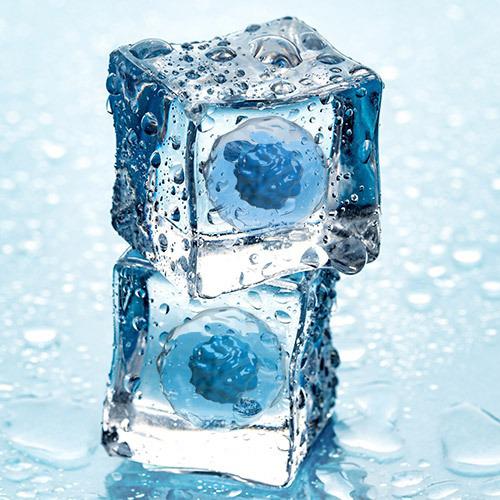Egg Freezing
Egg Freezing at Kanaa Fertility Centre
Safe and Scientific Fertility Preservation for Women in Chennai
At Kanaa Fertility Centre, we offer specialized egg freezing services to help women preserve their fertility for future family planning. Whether you’re postponing pregnancy due to career, health, or personal reasons, freezing eggs empowers you to conceive later when you’re ready. With experienced care and advanced technology, we ensure a smooth, safe, and successful egg freezing process.
Egg freezing is a fertility preservation procedure where a woman’s eggs are retrieved, frozen, and stored for future use. It is commonly chosen by women who want to delay pregnancy for personal reasons, preserve fertility before medical treatments, or plan future IVF. Egg freezing success depends on age, ovarian reserve, and the number of eggs frozen
Egg freezing (also called oocyte cryopreservation) is an increasingly popular fertility preservation option for women who want to protect their ability to conceive in the future. Whether someone is planning pregnancy later, managing medical treatments, or making long-term reproductive decisions, egg freezing offers flexibility and peace of mind.
Egg freezing is considered a part of modern fertility treatments and often supports future options like IVF treatment.
This page explains what egg freezing is, who it is recommended for, the process step by step, what affects outcomes, and how doctors help patients decide the right time for fertility preservation.
What is Egg Freezing?
Egg freezing is a procedure where eggs are collected from the ovaries, frozen using advanced laboratory techniques, and stored for future use. When a woman is ready to use the eggs, they are thawed and fertilized through IVF, and the resulting embryo may be transferred into the uterus.
Egg freezing allows women to preserve eggs at a younger age when egg quality is typically higher.


Who Should Consider Freezing Eggs?
Egg freezing may be recommended for:
Women who want to delay pregnancy
Egg freezing can help preserve fertility for women who want to postpone pregnancy due to:
- Career goals
- Personal reasons
- Marriage or relationship timing
Women with low ovarian reserve concerns
Women with reduced ovarian reserve may choose fertility preservation earlier based on test results such as the AMH test.
Women undergoing medical treatments
Egg freezing is strongly recommended for women who may undergo treatments affecting fertility such as:
- Chemotherapy or radiation
- Ovarian surgery
- Certain autoimmune treatments
Women with family history of early menopause
A family history of early menopause may influence fertility planning and decision-making.

Best Age for Egg Freezing
Age is one of the strongest predictors of egg freezing outcomes because egg quality and quantity decline over time.
In general:
- Egg freezing is most effective when done at younger ages
- Success rates tend to be higher when eggs are frozen earlier
- Ovarian reserve and egg quality are key factors
Doctors usually recommend fertility evaluation to determine individual timing and whether egg freezing is appropriate.

Egg Freezing Procedure: Step-by-Step
Step 1: Fertility Evaluation
Egg freezing begins with testing to understand:
- Ovarian reserve
- Hormone levels
- Follicle count
- Overall reproductive health
Common tests include:
- AMH test
- Ultrasound examination
- Hormonal blood tests
Step 2: Ovarian Stimulation
Fertility medications are used to stimulate the ovaries to produce multiple eggs in one cycle. Monitoring is done through:
- Ultrasound scans
- Hormonal testing
This ensures safe stimulation and proper timing.
Step 3: Trigger Injection
Once follicles are ready, a trigger injection helps eggs complete maturation before retrieval.
Step 4: Egg Retrieval
Egg retrieval is a minor procedure performed under sedation. Eggs are collected using ultrasound-guided technique and taken to the lab for freezing.
Most women return to normal activities within a short time after retrieval.
Step 5: Freezing and Storage
Collected eggs are frozen using advanced cryopreservation techniques and stored securely until needed.
Egg Freezing Procedure at Kanaa
The egg freezing procedure at Kanaa is performed by skilled specialists using globally recognized protocols:
- Ovarian Stimulation – Hormonal medications stimulate multiple egg development
- Monitoring – Blood tests and ultrasounds monitor response
- Egg Retrieval – Mature eggs are collected via a minimally invasive procedure under sedation
- Freezing – Eggs are preserved using vitrification and stored in secure cryotanks
- Storage & Future Use – Eggs can be thawed, fertilized, and used in IVF when you’re ready
Each phase of the egg freezing process is managed with care to ensure safety and long-term viability.
How Are Frozen Eggs Used Later?
When a woman decides to use frozen eggs:
- Eggs are thawed
- Eggs are fertilized using IVF
- Embryos are developed and monitored
- Embryo transfer is performed
In many cases, fertilization is performed using ICSI to improve fertilization outcomes during egg thaw cycles.
Benefits of Egg Freezing
Egg freezing offers several advantages:
Preserves fertility for future planning
Provides reproductive flexibility
Can be used before medical treatments that affect fertility
Supports future IVF attempts without egg-age decline
Helps women make choices without pressure
Limitations and Considerations
Egg freezing is a fertility preservation method, but outcomes depend on:
- Age at the time of freezing
- Number of eggs frozen
- Egg quality
- Storage conditions
- Future fertility factors
Egg freezing does not guarantee pregnancy, but it improves options for many women.
Egg Freezing vs Embryo Freezing
Both are fertility preservation options, but they differ:
Egg freezing
- Eggs are frozen unfertilized
- Useful for women not ready to choose sperm source
- Offers flexibility
Embryo freezing
- Eggs are fertilized and embryos are frozen
- May be recommended for couples undergoing IVF
Often used with frozen embryo transfer
Egg Freezing Cost: What Factors Affect It?
Egg freezing cost depends on:
- Medication requirements
- Number of stimulation cycles
- Testing and monitoring
- Freezing and storage duration
Doctors can guide patients with a clear treatment plan and timeline based on fertility evaluation.
Process Timeline
Step:1
Day 2 -patient reports for basal scan and blood tests.
Step:2
Gonadotropin injections are started on a daily basis.
Step:3
Day 5-transvaginal ultrasound monitoring started.
Step:4
Antagonist injection started on days 5-7 depending on scan findings.
Step:5
Day 9-12-Trigger injection given once follicles reach mature size.
Step:6
Ovum pick up done under anaesthesia
Step:7
Collected mature eggs are frozen in liquid nitrogen for future use.
How Does Egg Freezing Work for Fertility Preservation?
Frozen eggs are thawed in the future and fertilized using partner or donor sperm in a lab. The resulting embryos are then transferred into the uterus through IVF. This method reduces age-related infertility risks and gives women control over their reproductive timeline.
Why Choose Kanaa for Egg Freezing in Chennai?
- Expert fertility specialists and embryologists
- Modern vitrification methods with high egg survival rates
- Individualized guidance and fertility counseling
- Transparent explanation of the egg freezing procedure and expectations
- Supportive, discreet environment for every woman
Book Your Egg Freezing Consultation Today
If you’re thinking about freezing eggs to take control of your fertility, Kanaa Fertility Centre in Chennai offers expert care with compassion. Learn more about the egg freezing process, understand your options based on the egg freezing age limit, and preserve your fertility with confidence. Book your consultation today.
FAQs
What are the medical reasons for OC?
OC was originally introduced as a fertility preservation option for those women who were going to undergo surgical removal of the ovaries or chemotherapy treatment for cancer. Here it is usually done as an emergency procedure as treatment for cancer will need to be initiated as soon as possible.
What is “social” egg freezing?
It is the same process of OC done as a planned procedure where the woman wants to preserve her eggs for social rather than medical reasons.
The better terminology proposed is OC for anticipated gamete exhaustion(AGE)
Unfortunately, the reproductive window is definitely shorter in women than in men.
The time period when fertility rates peak in a lady is also the same as when her education and career advancement are at a peak.
It gives women more reproductive choice and decreases the pressure they face from the “biological clock”
Can oocyte freezing be considered as an insurance policy for future fertility?
NO, the best option will always be less invasive methods and natural conception if it is a possibility.
It is important to counsel women that though OC is an option to consider, it can in no manner be looked at as an option which will provide a 100% guarantee of giving birth.
The chances of a successful outcome primarily increase with two factors;
A.The younger the age at which the eggs are frozen- women who freeze their eggs at less than 35 years of age have more chances of giving birth.
B.The more eggs that are frozen, the better the chances of pregnancy.
One latest study reported that if a woman less than 35 years freezes 10-20 eggs, she has a 70-90% chance of having at least one child from them.
At age 38 and above, a woman may need to freeze about 20-30 eggs to have a reasonable chance of having at least one live child.
This may increase the number of cycles needed to collect the same number of eggs as the age of the lady increases.
What are the complications of OC?
The main complication is risk of OHSS as our aim is deliberate hyperstimulation to get the maximum number of eggs possible.
The risk of OHSS can be minimized by ;
A. Using the antagonist protocol.
B. Using the agonist trigger and avoiding hCG trigger.
C. Using antagonist injections post ovum pick up.
Will frozen eggs give lesser pregnancy rates as compared to fresh eggs?
With the advent of the vitrification procedure, the rates of survival after thawing have increased substantially.
Rates of fertilization, implantation and clinical pregnancy rates have been reported to be similar for both fresh and frozen oocytes.
But, the success rates may also differ with the expertise and experience of the person who does the vitrification.
Are there any risks to offspring with the use of frozen eggs?
As yet, there have been no increased risk of congenital abnormalities reported in children born from frozen eggs as compared to other IVF pregnancies. But the data on long-term oocyte storage and long-term offspring health will be known only with time and increased use of the treatment.
Is egg freezing painful?
Egg freezing involves injections and monitoring. Egg retrieval is performed under sedation, and most women experience mild short-term discomfort afterward.
How long can eggs remain frozen?
Frozen eggs can be stored for long periods under controlled conditions. The decision depends on medical advice and personal goals.
Is egg freezing the same as IVF?
Egg freezing uses IVF technology (stimulation and retrieval), but pregnancy is not attempted immediately. IVF is done when frozen eggs are later used.
Do frozen eggs require ICSI?
Often, yes. Many clinics use ICSI to improve fertilization outcomes when thawed eggs are fertilized.
